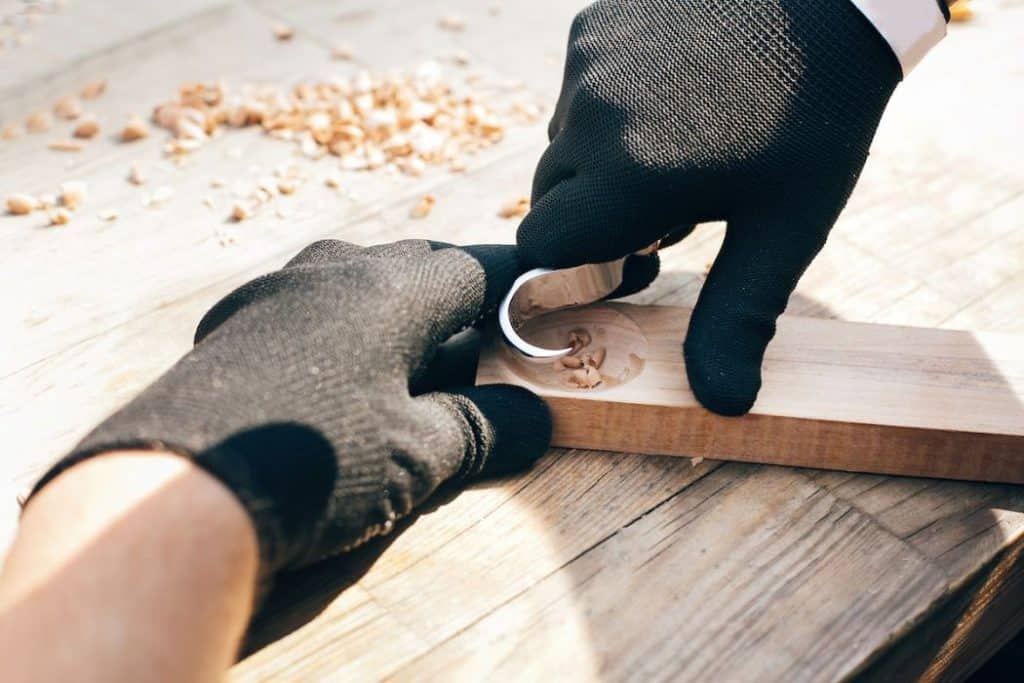Wooden spoons have become immensely popular as one of the first items most whittlers choose to do.
For amateur carvers, crafting wooden spoons can be a source of pleasure and yield an end product that can be put to good use.
It is important, however, to not only understand which woods make the best spoons, but also consider if the material is easy to work with.

The Pros and Cons of Wooden Spoons
There are many more benefits than drawbacks with wooden spoons, as outlined below.
Benefits of Wooden Spoons
Wood does not conduct heat, so wooden spoons will not alter the temperature during preparation, or singe/burn fingers. The taste of the food is preserved, more so since wood does not leach harmful chemicals or react with the food.
By contrast, certain metals may react with acidic ingredients such as tomato sauce.
Wooden spoons are supple and comfortable to the touch, but tough enough to handle sizable quantities. Environmental reasons are also cited by users of wooden spoons beyond the look and strong, comfortable feel.
Produced from natural resources, wooden spoons are environmentally friendly, in contrast to synthetic materials.
Some Drawbacks
Wooden spoons do have detractors. Some can be hard to clean, they have porous surfaces that tend to stain. Cracks or splinters could cause a potential hazard from microbial growth festering in seams.
There is, however, some scientific evidence that over time, such bacterial growth gets buried in the subsurface once they are wicked into the inner cells – the bacteria contained therein tend to die instead of multiplying.
The choice of wood can make a huge difference in building the right, longer lasting spoon.
The Kind of Wood that Makes for A Great Spoon
The ideal wood used to make a spoon should be lightweight and pliable, yet tough and not fragile. Pliability ensures that wood spoons will conform to the shapes of the users’ hands.
The best wooden spoons these days are frequently made out of the following materials:
- Bamboo
- Birch
- Maple
- Olive
- Teak
Searches for the best-selling wooden spoons show these materials used repeatedly. Bamboo, which was widely used in the Far East for both cooking and eating utensils, has now become a popular favorite in the US.
Having said this, an amateur woodcarver may lack the equipment and skill to work with some woods favored by the commercial manufacturers.
Some of the lightweight and pliable, yet hard, woods may be difficult to handle for amateur craftspeople carving their own spoons.

Woods that can be Used for Carving Spoons
A general rule of thumb is that conifers are not a good source of wood for spoons. Let us delve deeper.
As mentioned above, an amateur carver must not only choose a wood which doesn’t crack or splinter with use, but also one that they can easily work with – the material must be able to withstand a crafting process that does not involve commercial proficiency.
Bamboo or teak, for example, are great for spoons, but they are not easy to craft. There are softwoods, such as pine, spruce and cedar, which are easy to carve but not good materials for end use.
Similarly, ring porous species such as oak and ash are not good material for spoons – they have large pores that soak up food juices.
The menu of wood that works for an amateur could include the following:
- Black Cherry
- Walnut
- Birch
- Silver Maple
- Apple
- Beech
As you can see, there are some woods included that are good for spoon making in general, but the list was expanded to include material that is easier to carve for the amateur.
Tips for Carving – Green or Dry Wood?
The choice of material may also involve choosing either green (softer, “alive” or recently hewed) wood or dry (seasoned, hardened) wood.
Green woods are easier to carve with minimal tools. They can be easier and cheaper to find, a recently broken off branch may be fine to start with.
For the novice, these woods are easy to work – a little attention to the contours and seams of the wood even teaches you how to follow the natural structure (e.g., knots) of the wood, which will make your end product stronger.
Seasoned woods are usually purchased. The wood then needs to be forced into shape using tools such as saws, chisels and spokeshaves. This requires less understanding of the grain but requires more skill and tools – so it is harder and more expensive.
Tips for Using and Maintaining Your Spoons
Mineral Oil and Beeswax are two materials that are often used to maintain the look and luster of wooden spoons. Some other things to remember:
- Clean spoons immediately after use
- Hand wash with soap – wood will tend to splinter faster if put in the dishwasher
In Conclusion – Enjoy!
Spoons are fun to carve, whether you are starting out or a pro. They are also easy to design. Carving green wood teaches you how to understand the inner structure and contours of the piece being carved.
Choose the material that’s right for you and suits the purpose. Enjoy the end result in your everyday use – be it the kitchen or the dining table.




